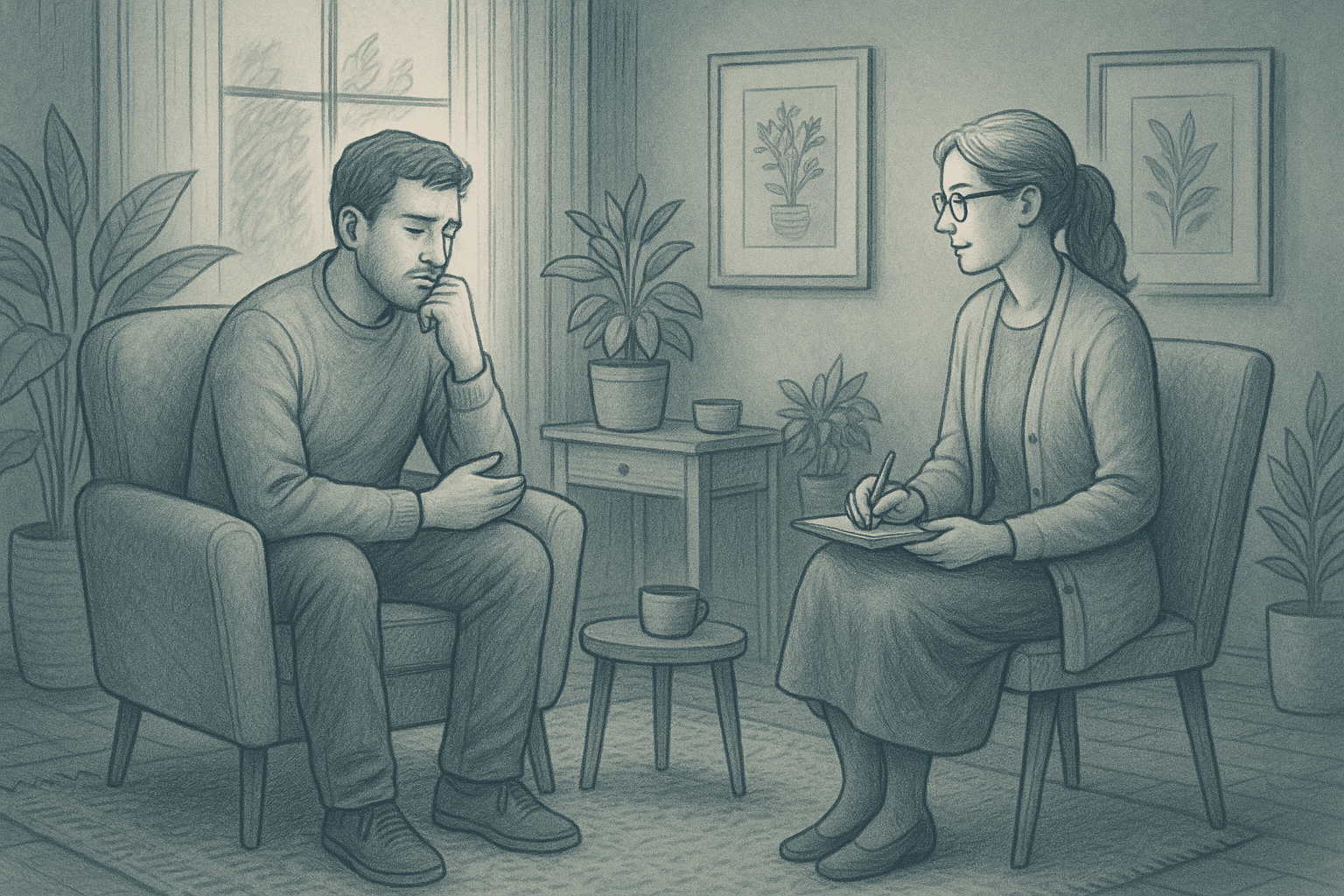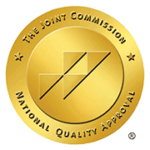
Key Takeaways
- OCD symptom trackers are tools that help you identify patterns and triggers, offering a clearer understanding of your condition.
- Using a tracker can empower you to take control of your mental health journey by setting achievable goals.
- Customized tracking tools can be adapted to fit personal needs, making them more effective.
- Integrating tracking into therapy sessions provides valuable insights that can aid in adjusting treatment strategies.
- Mission Connection Healthcare integrates symptom tracking directly into therapy sessions, creating a dynamic treatment approach that evolves based on your unique symptom patterns.
OCD Symptom Tracker Overview
Obsessive-Compulsive Disorder (OCD) can feel overwhelming, but understanding your symptoms is the first step towards managing them. An OCD symptom tracker is a tool designed to help you keep a detailed record of your symptoms. This tracking is crucial for identifying patterns and understanding what triggers your symptoms.
Definition of OCD Tracking
OCD tracking involves systematically recording your obsessions and compulsions, along with any potential triggers or stressors. This process helps in painting a comprehensive picture of your mental health, allowing for more targeted interventions. By noting down specifics such as time, location, and emotional state, you gain a clearer insight into your OCD patterns.
Benefits of Symptom Tracking
There are numerous benefits to tracking OCD symptoms. First, it helps in recognizing patterns that might not be apparent initially. For example, you might notice that your symptoms worsen during specific times of the day or in certain environments. Additionally, tracking allows you to monitor progress over time, providing motivation and a sense of control.
How Tracking Supports Treatment
Tracking symptoms plays a vital role in supporting treatment by offering concrete data that can guide therapy sessions. For example, if you’re working with a therapist, your tracker can highlight specific areas that need more focus, such as particular obsessions or compulsions. This allows for more efficient and targeted therapy sessions.
Additionally, tracking can help in setting realistic goals. By understanding your symptoms in depth, you and your therapist can set achievable objectives, making the treatment process less daunting and more structured. Most importantly, symptom tracking fosters a sense of empowerment during your mental health journey.
| Mission Connection: Outpatient Mental Health Support Mission Connection offers flexible outpatient care for adults needing more than weekly therapy. Our in-person and telehealth programs include individual, group, and experiential therapy, along with psychiatric care and medication management. We treat anxiety, depression, trauma, and bipolar disorder using evidence-based approaches like CBT, DBT, mindfulness, and trauma-focused therapies. Designed to fit into daily life, our services provide consistent support without requiring residential care. Start your recovery journey with Mission Connection today! |
Setting Up an OCD Symptom Tracker

Choosing the Right Tools
When selecting a tool for tracking your symptoms, consider what will work best for you. There are lots of options available, from traditional pen-and-paper diaries to digital apps that offer more sophisticated features. Some people prefer the tactile nature of writing things down, while others appreciate the convenience and accessibility of a smartphone app.
Consider features like reminders, data visualization, and the ability to share information easily with your healthcare provider. Choosing a tool that aligns with your lifestyle will increase the likelihood of consistent tracking.
Customization for Personal Needs
Customizing your symptom tracker is crucial to ensure it meets your specific needs. This might involve tailoring the categories you track, such as the types of obsessions and compulsions you experience, or including additional notes on your emotional state or environmental factors.
Personalization makes the tracker more relevant and effective for you. For example, if you notice that certain foods or activities influence your symptoms, include these in your tracking to gather more comprehensive data.
Setting Goals and Objectives
Before you begin using your OCD symptom tracker, set clear goals and objectives. Determine what you hope to achieve through tracking, whether it’s identifying triggers, reducing the frequency of compulsions, or improving communication with your therapist.
Having specific goals in mind will guide your tracking process and provide a sense of purpose. This makes tracking more meaningful and helps in maintaining motivation over time.
Using the OCD Symptom Tracker Effectively
Daily Logging Practices
Try to record your observations at the same time each day to build a habit. This could be in the morning when you review the previous day or in the evening as you wind down.

When logging, be as specific as possible. Note the time of day, location, and any specific triggers or thoughts associated with your symptoms. The more detailed your entries, the easier it will be to identify patterns and make informed decisions about your treatment.
Recording Triggers and Responses
As you track, pay close attention to the situations or thoughts that precede an episode. This could be anything from stress at work to a particular phrase or image.
Besides identifying triggers, document your responses. How do you react when you encounter a trigger? Do you engage in compulsive behaviors, or are there moments when you’re able to resist? Recording these details can help you and your therapist develop strategies to manage or avoid triggers.
Assessing Patterns and Trends
By assessing patterns, you can gain some valuable insights into your OCD. For example, you might discover that your symptoms are less severe on weekends or that they intensify during stressful work periods. These insights are crucial for your treatment plan.
Integrating the Tracker Into Therapy

Sharing Data with Healthcare Providers
One of the main benefits of tracking your symptoms is the ability to share detailed data with your healthcare providers. This information provides a concrete basis for discussions during therapy sessions, allowing for more focused and effective treatment plans.
When sharing your data, highlight any significant patterns or changes you’ve noticed. This can help your therapist understand your condition better and make informed decisions about your treatment.
Adjusting Treatment Based on Insights
The insights gained from your symptom tracker can lead to adjustments in your treatment plan. For example, if you notice that certain triggers consistently lead to intense compulsions, your therapist might introduce exposure and response prevention techniques to help you manage these situations.
Collaborative Progress Review
Collaborative reviews help ensure that your treatment plan remains relevant and effective. Use your tracker as a tool to facilitate discussions and highlight areas where you’ve made progress and those that still need attention.
By working together, you and your therapist can celebrate your achievements and address any ongoing challenges, keeping your mental health journey on track.
Reviewing and Refining Your Tracking Process
Regular Tracker Updates
To maintain the effectiveness of your OCD symptom tracker, keep it updated regularly. This means setting aside time each day or week to log your symptoms and any relevant details. By doing so, you can make sure that the data you collect is accurate and reflective of your current experiences.
Identifying and Overcoming Challenges
If you find yourself struggling to maintain your tracking routine, consider what might be causing the difficulty. Are there specific times of the day when you’re more likely to skip logging? Identifying these moments can help you find solutions, such as setting reminders or adjusting your logging schedule to better fit your lifestyle.
Additionally, if you’re feeling overwhelmed by the details of tracking, simplify your approach. Focus on the most critical symptoms and triggers and gradually expand as you become more comfortable with the process.
Celebrating Progress and Milestones
Tracking your OCD symptoms isn’t just for identifying challenges; it’s also an opportunity to celebrate progress and milestones. As you review your tracker, take note of the improvements you’ve made, whether it’s a reduction in the frequency of compulsions or a better understanding of your triggers.
Celebrating these achievements, no matter how small, can boost your motivation and reinforce the positive impact of tracking.
Mission Connection: Your Partner in OCD Tracking and Recovery

Our specialized team of clinicians at Mission Connection integrates personalized symptom tracking into comprehensive treatment plans customized to your unique needs.
Through our flexible outpatient programs and convenient telehealth options, we provide evidence-based therapies including Cognitive Behavioral Therapy and Exposure Response Prevention approaches proven effective for OCD.
Our clinicians not only help you implement consistent tracking but also skillfully interpret your data to fine-tune treatment strategies. We believe in treating the whole person, not just the symptoms. We’ve created a supportive environment where your tracking insights become stepping stones toward lasting recovery.
Don’t face OCD alone. Let Mission Connection guide you from understanding your symptoms to reclaiming your life.
Frequently Asked Questions (FAQ)
How often should I update my OCD symptom tracker?
The frequency of updates depends on your personal needs and preferences. For most people, daily logging is ideal, as it captures a comprehensive view of symptoms and triggers. However, if daily tracking feels overwhelming, consider starting with weekly updates and gradually increasing the frequency as you become more comfortable.
Can a symptom tracker replace therapy?
No, a symptom tracker is not a replacement for therapy. While tracking provides valuable insights and aids in self-awareness, it cannot replicate the guidance and support offered by a mental health professional.
What should I do if I notice worsening symptoms?
If you observe a worsening of symptoms through your tracker, it’s important to address this with your healthcare provider promptly. They can help determine if changes to your treatment plan are necessary and offer strategies to manage the escalation.
How do I select the right tracking app or tool?
Choosing the right tracking app or tool involves considering several factors, such as ease of use, features, and compatibility with your lifestyle. Look for apps that offer reminders, data visualization, and the ability to share information with your healthcare provider.
Is it necessary to track every detail of my symptoms?
While detailed tracking can provide more comprehensive insights, it’s not necessary to track every single detail. Focus on the aspects that are most relevant to your treatment goals, such as specific triggers, the frequency of compulsions, or emotional responses.
How can Mission Connection help me implement effective OCD symptom tracking?
At Mission Connection Healthcare, our specialized approach to OCD treatment incorporates symptom tracking as a core component of your personalized care plan. Our experienced therapists will help you design a custom tracking system customized to your specific OCD symptoms and treatment goals.
During therapy sessions, our clinicians skillfully interpret your tracking data, identifying patterns that inform targeted interventions through cognitive-behavioral therapy, exposure and response prevention, or other evidence-based approaches.







